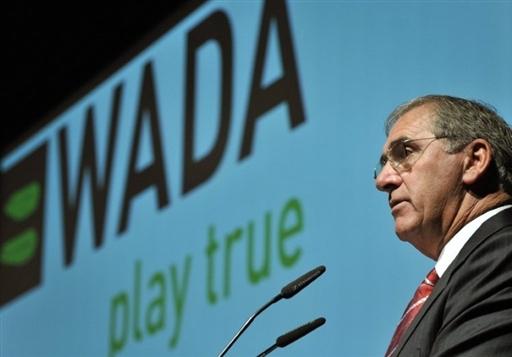WADA working all the angles in fight against doping
Bio-passport, cooperation with drug giants and Interpol to help stem doping

The World Anti-Doping Agency (WADA) may not have won the fight against doping yet, but after 10 years in the business, it has made significant strides toward that goal, the organization's president said in a media symposium in Switzerland on Tuesday.
WADA president John Fahey urged all parties involved in the fight to continue their efforts and not give in to complacency.
"It would be easy for the two groups that compose and fund WADA – governments and the sport movement – to tell themselves that with WADA they have got the formula or the rules right, that they have got the structure and the resources right. The problem of doping has not disappeared with WADA," said Fahey. "To rest on our laurels at this time would be a huge mistake."
While WADA is not involved in testing athletes for doping, it does coordinate the effort by certifying laboratories, setting policies and gaining the cooperation of governments and sporting bodies to enforce the rules laid out in the WADA code.
The main problem has been that doping protocols have historically out-paced advances in detection, allowing the dopers to stay one step ahead of the testers.
That changed somewhat with the biological passport protocols, first implemented by the International Cycling Union (UCI), being approved by WADA in 2009. The passport is aimed at detecting the physiological evidence of doping rather than drugs themselves.
WADA has also fostered a cooperation with pharmaceutical companies to develop tests as new drugs are developed, and opened the possibility for anti-doping organizations to re-analyze samples as science advances also helps deter athletes from doping.
Get The Leadout Newsletter
The latest race content, interviews, features, reviews and expert buying guides, direct to your inbox!
In addition, WADA is placing an increased emphasis on preventing drugs from reaching athletes in the first place by encouraging anti-doping authorities to cooperate with law enforcement, including Interpol, to catch suppliers.
Fahey cautioned that there are still plenty of challenges ahead. "We must constantly challenge ourselves and the efficacy of our current programs," he said. "At the forefront of our efforts must be a values-based education program. Going forward, anti-doping organizations must also implement smarter programs. We must use modern technology to simplify our methodologies.
"Today," he concluded, "athletes who play fair in sport can have increasing confidence that major progress is being made in the fight against doping and that the net is closing around the cheaters. WADA will continue to work relentlessly to further close the net and meet the challenges in the years to come."
The revised WADA code went into effect at the start of the year, and includes important changes to the agency's whereabouts system. Athletes are no longer required to be available 24 hours a day, 7 days a week. They must now specify a one hour time slot each day where they can be located for testing.
The agency also resolved objections by FIFA, the football/soccer governing body, to the whereabouts system, and are in discussions with it regarding the implementation of the biological passport in football as a "long-term" project.
The next major code revision will take place in 2012.

Laura Weislo has been with Cyclingnews since 2006 after making a switch from a career in science. As Managing Editor, she coordinates coverage for North American events and global news. As former elite-level road racer who dabbled in cyclo-cross and track, Laura has a passion for all three disciplines. When not working she likes to go camping and explore lesser traveled roads, paths and gravel tracks. Laura specialises in covering doping, anti-doping, UCI governance and performing data analysis.